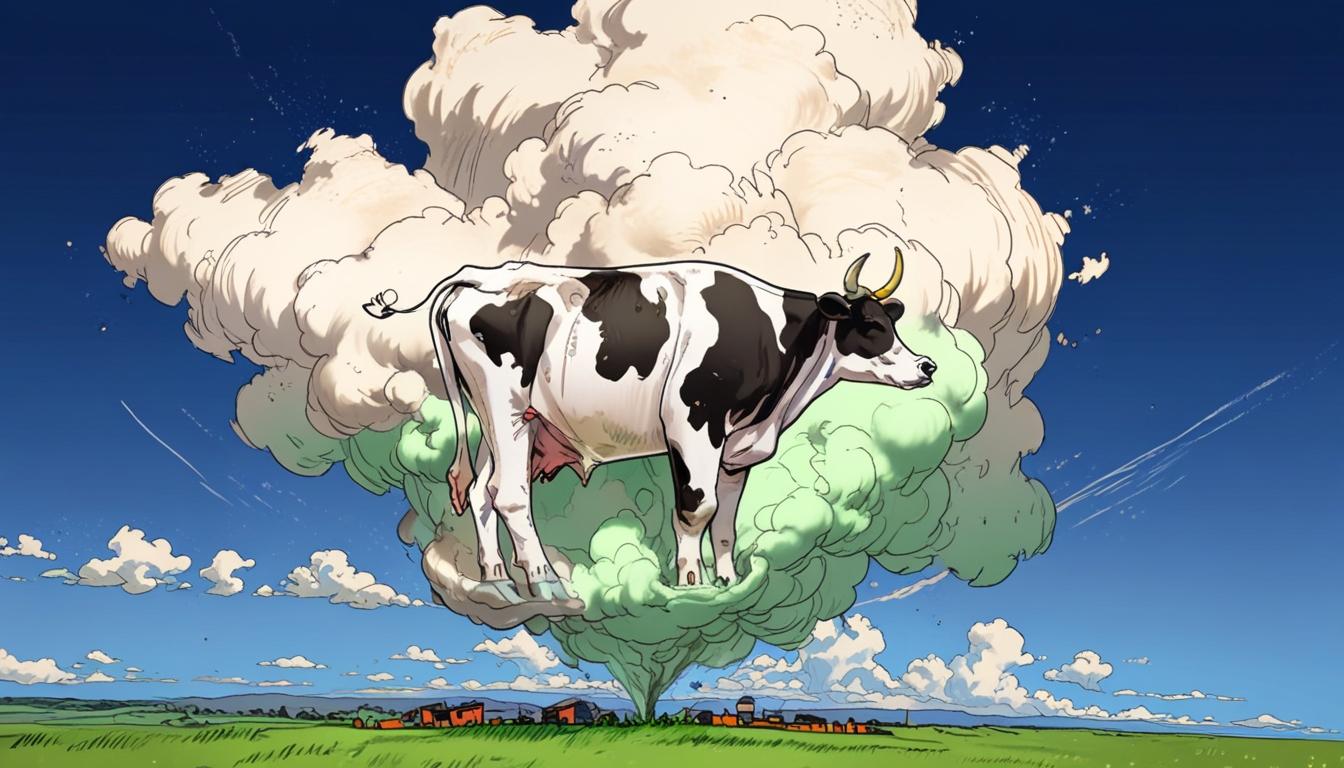Big dairy companies are increasingly under scrutiny for their inaction regarding methane emissions, a potent greenhouse gas that significantly contributes to climate change. An assessment of 20 major dairy and coffee brands, collectively generating over $420 billion in revenue, highlights a disconcerting trend: most of these companies lack explicit methane reduction targets, viable action plans, and transparency in their emissions data.
Animal agriculture is notably responsible for 32% of global methane emissions, with the breeding of cattle for milk and meat being a primary factor. Methane's impact on climate change is severe; it is approximately 80 times more effective than carbon dioxide in trapping heat over a 20-year period and has been attributed to nearly half of the total temperature rise since 1750. As the climate crisis intensifies, identified cuts to methane emissions present a critical avenue for mitigating global heating and its associated consequences.
According to the report, Danone stands out among its competitors as the only company to set a specific methane reduction target. It aims for a 30% reduction in absolute methane emissions from its fresh milk supply chain by 2030, having already reduced emissions by roughly 14% from 2018 to 2020. This initiative aligns with a broader trend; at COP28, several leading food companies, including Nestlé and General Mills, have committed to increasing transparency regarding their dairy-related methane emissions as part of the Dairy Methane Action Alliance, which is driven by the global nonprofit Environmental Defense Fund.
Despite these commitments, the overall findings reveal a disheartening lack of action. Only Nestlé and Danone claimed to have cut their emissions, with the industry remaining largely silent on methane’s environmental impact. Nusa Urbancic, the chief executive of Changing Markets, remarked that the absence of methane-specific targets signals a reluctance among firms to confront a significant driver of climate change. The need for immediate action is underscored by the scientific consensus; experts advocate that governments must introduce science-based methane reduction mandates for the agricultural sector.
Arla, one of the assessed companies, has publicly rejected criticisms levied against its climate strategies, asserting that its commitments to sustainable dairy production and science-based targets are firmly in place. However, independent evaluations question the credibility of these claims, particularly concerning the accuracy of Arla's emissions reporting. Industry stakeholders are facing mounting pressure not only to reduce methane emissions but also to demonstrate their commitment to sustainability through concrete actions.
The focus now shifts to European governments, where leadership in the global methane pledge is crucial as new legislation looms. Dubbed a rare opportunity to effectively manage methane emissions, dairy production could be a game-changer in the fight against global warming if coupled with meaningful corporate responsibility and active governmental intervention. Urbancic emphasises, “Fine words from businesses and a few voluntary actions are little more than hot air.” With a growing severity of climate impacts, the spotlight is on the dairy industry to pivot from complacency to accountability, ensuring that promises of sustainability are backed by tangible results.
The forthcoming months will be critical in determining whether these alliances and commitments translate into significant methane reductions. For now, the industry faces a pivotal moment that could define its role in climate action and its responsibilities toward environmental stewardship.
Reference Map
- Paragraphs 1, 2, 3
- Paragraphs 1, 2, 3
- Paragraph 4
- Paragraphs 5, 6
- Paragraph 7
- Paragraphs 4, 5, 6
- Paragraph 4
Source: Noah Wire Services
